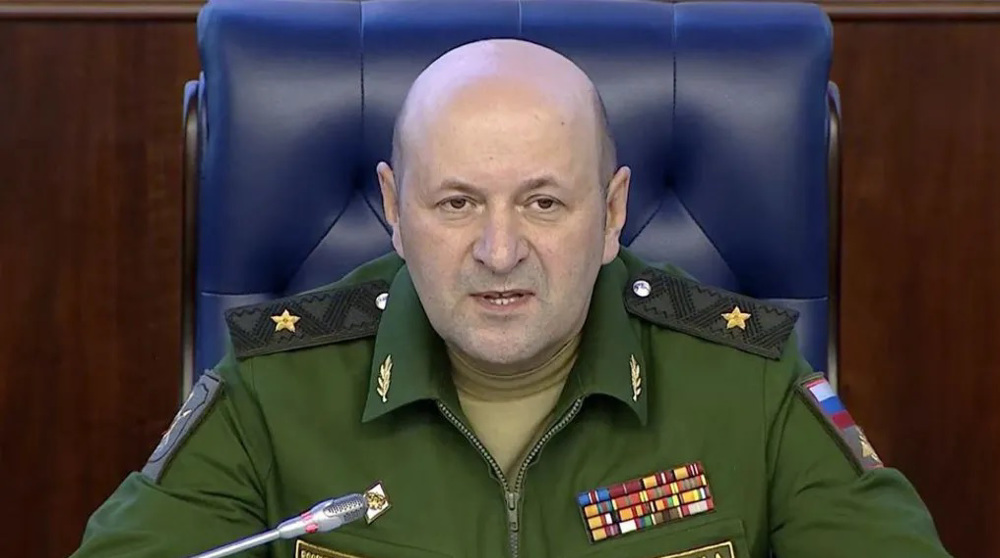Turkey intentionally seeking standstill in ties with Russia: Putin
Russian President Vladimir Putin says Turkey is consciously attempting to bring Moscow-Ankara relations to a standstill amid heightened tensions between the two sides following Turkey’s recent downing of a Russian fighter jet on the Syrian soil.
“It seems that the Turkish leadership is deliberately driving relations (between Russia and Turkey) into a dead end,” Putin said at the Kremlin on Thursday while receiving diplomatic credentials from foreign ambassadors.
The Russian leader added that Ankara still has not made an apology for the downing of the Russian warplane or an offer “to make up for the damages.”
He further said Turkey has not provided any assurances that “the culprits of this crime” will be punished.
On November 24, Turkey shot down a Russian Su-24M Fencer aircraft with two pilots aboard, claiming the fighter jet had repeatedly violated the Turkish airspace.

Moscow, however, dismissed Ankara’s claims, stressing that the plane was brought down in Syrian airspace, where Russia has been conducting operations against Takfiri terrorists since September 30 upon a request by the Damascus government.
Following the incident, Putin described Turkey’s downing of the Russian plane as “a stab in the back" by "the accomplices of terrorists” while warning of “serious consequences.”
Elsewhere in his Thursday remarks, the Russian president described terrorism as the main threat to international security and urged an uncompromising fight against the “evil” phenomenon.
“I think that any attempts to whitewash terrorism, to connive with terrorists should be seen as an actual act of complicity in terrorism, complicity in a crime,” Putin added.
Earlier this week, Russian Prime Minister Dimitry Medvedev also slammed Turkey for downing Moscow’s military aircraft, saying some Turkish officials have “direct financial interest” in the oil trade with Daesh.
“Turkey’s actions are de facto protection” of Daesh, said Medvedev, adding, “This is no surprise, considering the information we have about direct financial interest of some Turkish officials relating to the supply of oil products refined by plants controlled” by the Takfiri terror group.
Speaking to a group of local officials in Ankara, Turkish President Recep Tayyip Erdogan on Thursday challenged Russia to prove its accusation that Turkey buys oil and gas from Daesh, branding it as “shameful.”

The Turkish president denied that Ankara was collaborating with Daesh, claiming that his country’s fight against terrorists was “undisputed.”
He further accused the government of Syrian President Bashar al-Assad of buying oil from Daesh, claiming that the militant group “sells the oil they drill to Assad.”
Turkey has time and again been accused of aiding and abetting supporters of militant groups operating in Syria, with reports saying that Ankara actively trains and arms the Takfiri militants there, and facilitates their safe passage into the Arab country.
Spain jurists demand ties with Israel ties be cut
VIDEO | Press TV's news headlines
VIDEO | Iran honors top Science Olympiad medalists
VIDEO | Austrians arrested at Gaza protest in Vienna
10 killed in bus crash in western Iran
VIDEO | One-man-band journalism with Civili
5 Israeli forces killed as Palestinian fighters face up to regime’s war machine
VIDEO | An insider's view of the country: Persian Tahini, Royan in Mazandaran














 This makes it easy to access the Press TV website
This makes it easy to access the Press TV website